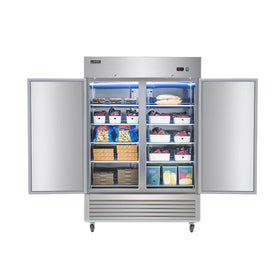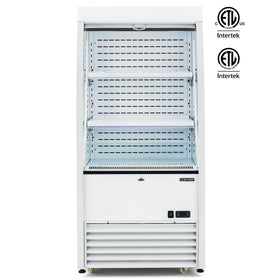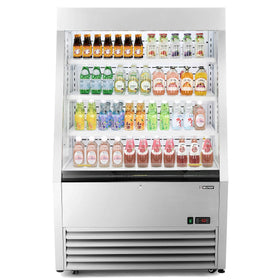Opening a liquor store can be a profitable business, but, more than any other kind of business, it requires careful planning, a good amount of startup capital, and a decent amount of working experience.
In this post, we will share everything you need to know about starting a liquor store, from startup costs to licensing, as well as insights on market strategy and securing funding.
Whether you’re in New York, Texas, or Florida, you’ll find the information you need to get started.
Step 1: Plan Your Business
The first step in opening a liquor store is thorough business planning. Starting a liquor store is heavily capital-intensive: even more so than starting a coffee shop or a sandwich shop.
So, before diving into inventory and location, a huge part of business planning has to go into how to generate your startup capital.
Spoiler alert: you need a lot. You need a lot of capital to start a liquor store.
How Much Do You Need To Start a Liquor Store?
Opening a liquor store requires a hefty upfront investment. Most liquor store owners estimate it costs about $340,000 to $500,000 just to get through your first 18 months after opening a liquor store.
Most of these upfront costs go into inventory, signage, wages, operating costs, and acquiring a liquor license, which can be pretty expensive depending on where you live..
Here’s a simple breakdown of the cost of opening a liquor store and how much you might spend within the first year or so.
| Expense Category | Estimated Cost | Details |
| Inventory | $100,000 | Stocking shelves with liquor products |
| Fixtures & Equipment | $20,000–$30,000 | Includes shelving, refrigeration units, and cash registers |
| Refrigeration | Included in Fixtures & Equipment | Refrigeration is a major expense, particularly for beer & wine |
| Store Setup (Signage) | $5,000–$10,000 | Signage costs, just for the basics |
| Wages and Operating Costs | $60,000 | If you plan on running the store full-time |
Once you’ve added up these costs, you’ll need enough money set aside to cover rent and fixed expenses for the first 18 months.
For a basic location, you might need about $5,000 per month (or more, depending on your area), which totals to around $90,000 for the first year and a half.
All said and done, it’s a substantial financial commitment, and that’s before you even think about your liquor license.
How to Secure Funding For Your Liquor Store
If you’re not independently wealthy, you’ll need to find investors or partners who believe in your idea and can help you financially.
Many liquor store owners caution that banks are generally reluctant to lend that much money, unless you have co-signers with significant assets.
Previous Liquor Store Management and Experience May Help Secure Funding
However, the hope for you may be that investors put their money on the person, not the idea.
If you can show previous experience working at a liquor store and prove yourself to be adept and knowledgeable in the liquor business, you might be able to convince investors and generate the funds you need to start your liquor store.
- So, before opening your store, consider working at a successful and well-run liquor store for a few years.
- It will give you valuable insights into what works (and what doesn’t) and help build the kind of track record investors want to see.
Step 2: Get a Liquor License
Getting a liquor license is one of the biggest hurdles in opening a liquor store. First, liquor license costs can be very steep, depending on where you live. A liquor store owner from Orlando confided that he had to spend about $250,000 on his liquor license.
Second, each state (and sometimes even local municipalities) has its own rules and fees.
Obtaining a Liquor License in New York, Florida, or Texas
Getting a Liquor License in New York
Starting a liquor store in New York is complicated because it is very difficult to acquire a New York liquor license. You have to apply at the Liquor Authority, and licenses are classified based on whether you intend to retail, wholesale.
Applicants have complained that the process can take months, and there’s often a high level of scrutiny involved, so you might want to start early.
Getting a Liquor License in Florida
Liquor licences in Florida are generally more expensive, costing anywhere from $1,000 to $10,000, depending on the type of license you need (beer, wine, or full liquor).
Generally, if you wish to sell liquor, you have to obtain a quota license, and those are limited throughout the state. Licenses in places like Orlando could cost much more as the state has limited licenses, and some areas are highly regulated.
Getting a Liquor License in Texas
Liquor licenses in Texas tend to be more affordable, with costs ranging from $1,000 to $3,000 for a basic retail license. You can apply for a TABC license online. But even here, zoning and the competitive landscape can be major challenges.
How to Get Over Expensive Liquor License Costs
The liquor shop owners we speak to advise starting with a wine license. Wine licences are generally more affordable, and they allow you to start dipping your toes in the industry. However, you will still face tough zoning restrictions and other barriers.
a. Pro Tip: Apply Early For Your Liquor Store License
Another tip when applying for a liquor license is to start early. The process can be long, and any delay can set back your store’s opening timeline.
b. Get Affordable Commercial Refrigerators
To open and operate a liquor store, you need commercial refrigerators to keep beer, wine, and chilled beverages at the right temperature.
Beer and white wine need to be stored at lower temperatures, and it is also important for certain spirits or mixers that benefit from cool storage.
Here is a list of commercial refrigerators you need
i. Under-Counter Refrigerators
Small-size 28" commercial single door undercounter refrigerator, with 6.2 cu. ft. capacity and a temperature range of 32 to 50°F.
For small storage and backroom use, such as holding smaller quantities of chilled liquor or mixers.
Wilprep undercounter refrigerators are compact and space-efficient, perfect for storing stock in tight spaces or behind the counter for easy access.
ii. Wine Coolers
Wine coolers are best for storing wine at optimal temperatures and humidity. Wine requires specific temperature control, generally between 45–65°F, to preserve wine quality.
iii. Commercial Display Refrigerators
Many customers prefer their beer, wine, and ready-to-drink cocktails cold and ready to go. With LED lights and fogproof glass doors, Wilprep display refrigerators make it easy to offer that convenience and increase impulse purchases.
iv. Reach-In Refrigerators
(54" Commercial Solid Door Reach-In Freezer 42.2 cu. ft. Capacity)
This 54-inch mid-size model has two doors, 42.2 cu. ft. capacity, with 10 adjustable shelves, each capable of holding up to 88 lb.
Reach-in refrigerators are best for quick access to a variety of chilled items, including beer, wine, and mixers. These are the standard refrigerators you see in many retail stores, offering easy access to cold items and maintaining a consistent temperature for daily sales.
v. Walk-In Coolers
For bulk storage of chilled items, especially beer and large quantities of wine.
Walk-ins are ideal for stores with high-volume sales. They allow for organized storage and easy access to products that need to stay cold but aren’t immediately needed on the floor.
Step 3: Establish Your Market Strategy and Competitive Edge
When opening a liquor store, it’s important to assess your competition and develop a strategy that helps you stand out. Large retailers like Total Wine, Spec’s, and even Walmart or 7-Eleven will almost always be able to beat your prices.
How to Gain a Competitive Edge
Smaller liquor stores that succeed are those that focus on providing exceptional service, especially in a niche market or premium category.
For example, the more successful stores we work with have knowledgeable staff who can confidently recommend high-end products and help customers find what they are looking for—whether a $50 bottle of Scotch or a more affordable everyday wine.
Explore Wholesale Options (If Legal)
Another good idea is to explore wholesale options for local restaurants. In states like New York, this is illegal (except you have the right license), but in other parts of the country, you might be able to sell alcohol directly to restaurants at a discount.
This could help you build relationships and supplement your store’s revenue.
Step 4: For a Small Liquor Store, Customer Service is Key
One thing that all liquor store owners cannot stress enough is this: customer service is everything. Liquor stores that thrive are those where customers feel welcomed, valued, and well-informed.
- Focusing on knowledgeable staff who can comfortably recommend high-end bottles and craft spirits.
- But don't forget more affordable options, either—being able to offer a wide range of products at different price points is essential.
People should come into your liquor store, not because you are the cheapest, but because they trust you to offer interesting and unique products. Good service creates loyal customers, and that’s a huge advantage over your competitors.
Step 5: Get Some Experience First
If you’ve never worked at a liquor store before, it’s hard to know what you’re truly getting into. Running a liquor store can be incredibly demanding—long hours, heavy lifting, and dealing with customers who might not always be easy to please.
If you’re serious about opening a liquor store, work in one first. This will give you real-world experience that will be invaluable when it’s time to take the plunge.
Consider working at a local bottle shop, and try to learn everything you can about managing inventory, customer service, and the ins and outs of liquor sales.
Final Thoughts (And Encouragements!)
Opening a liquor store is not a get-rich-quick venture. It’s a serious business that requires large upfront capital, careful planning, and a keen understanding of the industry.
But if you’re willing to put in the work—whether that’s securing funding, working at a store to get experience, or simply developing an excellent customer service strategy—you can build a successful business.
With the right knowledge, experience, and resources, your liquor store can become a staple in your community. So, start preparing today—you’ve got this!
If you are a budding entrepreneur, you might want to consider how to start a bakery, or our complete guide on how to start a sandwich shop.










